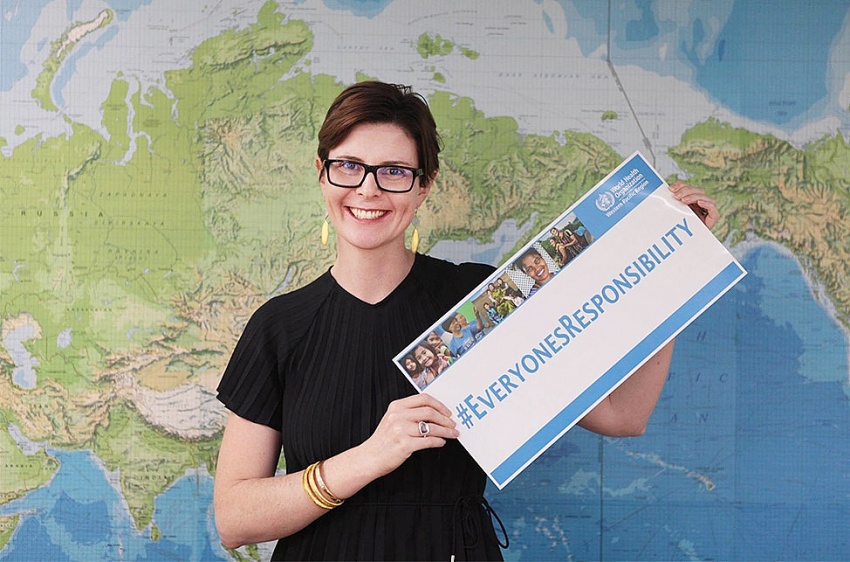Fresh approaches sought to succeed in health innovation
How has innovation made progress in Vietnam’s healthcare sector?
Much of the progress in public health historically has been driven by innovation. Innovation has helped dramatically improve the health and quality of life for millions of people in Vietnam over the past few decades.
 |
| Dr. Angela Pratt, World Health Organization Representative in Vietnam |
In the early 1960s, average life expectancy was just 60 years. In contrast, a baby born in Vietnam today can expect to live for at least 75 years – thanks to advances in child and maternal health, massive reductions in vaccine-preventable diseases including the elimination of polio, improvements to health services, and the benefits to health of Vietnam’s successes in reducing poverty.
Much of this progress has been made possible through innovation – such as the development of new vaccines and medicines, and advances in medical technology, which have made treatment and cure of once complex and even life-threatening conditions more accessible.
Sometimes crises can also speed up innovation. For example, during movement restrictions in the pandemic, the Ministry of Health, supported by the World Health Organization (WHO), piloted a web-based HIV self-testing platform to enable people at higher risk of HIV to access tests, support people with HIV to receive anti-retroviral treatment, and support people testing HIV negative to take pre-exposure prophylaxis to reduce their risk. The pilot was so successful that it is now being rolled out more widely – a great example of an innovation forged during a time of crisis now being expanded.
There is huge potential for digital health and AI to help address gaps in countries’ health systems and increase people’s access to diagnoses, treatments and care. AI can use data to predict diseases, personalise treatment, educate and engage patients, ensure people adhere to medication regimens, and more. AI can be beneficial in settings with a lack of medical specialists, e.g., in interpreting retinal scans and radiology images.
However, digital health tools need careful regulatory oversight to ensure they are safe, effective, confidential and deliver good quality service. Countries also need to make sure new technologies do not worsen gaps in healthcare for people who do not have access to smartphones and other devices, and the internet.
Though the pandemic brought some innovative practices, it also hindered overall progress towards the health-related targets of the Sustainable Development Goals and heightened the vulnerabilities of fragile health systems. To regain momentum and effectively tackle persistent challenges and emerging threats while ensuring inclusivity, there is a pressing need for more and better health innovations.
Vietnam’s healthcare sector is now attractive to an increasing number of multinational corporations. How have they been leveraging innovation to accelerate impact in health?
Multinationals can spearhead innovations through research and development that generates new medicines and new technologies.
However, some of the most complex innovative medical breakthroughs happen in the public sector as that is where the most complex medicine is typically done. Also, innovation is not always high-tech, but there can be smarter ways of doing things for greater impact. An example is innovative outreach strategies that increase the number of people accessing health screening or treatment.
Successfully harnessing innovation for the public good requires having strong governance, including regulatory mechanisms, in place for both public and private sectors to guide health sector innovation and development and ultimately to protect people’s health. Such mechanisms aim to put the necessary tools, norms, and standards in place and require both public and private sector adherence to them.
What are sufficient conditions for a country to succeed in health innovation? What lessons should Vietnam learn from others?
Vietnam and other countries and areas of the Western Pacific Region have agreed on a Regional Health Innovation Strategy with four key areas of action.
Government policies can foster and scale up health innovation. These supportive policies can include anticipating future opportunities and challenges, investing in education and research, fostering collaboration and partnerships, ensuring a favourable regulatory environment, and cultivating inclusive and sustainable new markets for health innovations.
Institutions need key capacities such as leadership, collaboration, research, data-driven decision-making, engagement with innovation stakeholders, a culture of learning from experimentation, change management and evaluation.
Long-term financing is essential to scale up health innovations. Measuring health innovations supports learning from experience, allows for policy and implementation strategy adjustments, and ensures that stakeholders’ actions are cost-effective and efficacious.
Which approach does the WHO facilitate to link human health demands in countries with ready-to-scale innovations, while leveraging assessment throughout?
The WHO plays an important role in supporting countries and areas in the region in their pursuit of health innovation. This support includes supporting countries in identifying strategic priorities with the greatest health impact, and prioritising problems for solving and shaping missions for health innovation.
It also includes developing and disseminating norms and standards to govern health innovation, enhancing capacity-building in health innovation, and establishing and sustaining regional platforms that promote knowledge exchange, engagement with innovators and experts on innovation, and multi-sectoral partnerships to advance regional health innovation.
 | VIR conference highlights innovation in Vietnam's healthcare sector A conference organised by Vietnam Investment Review (VIR) themed "Empowering Innovation for Vietnam's Sustainable Healthcare" was held on September 25, offering an opportunity for policymakers and companies to discuss innovation in Vietnam's healthcare sector. |
 | Unlocking the potential of healthcare innovations While health innovation in Vietnam is taking place strongly, many challenges prevent the sector from unlocking its full potential. Do Xuan Tuyen, Deputy Minister of Health, talked to VIR’s Minh Tung about global lessons to improve the situation. |
 | Foreign-led groups seize the initiative in healthcare Vietnam’s healthcare sector is rapidly developing as the country seeks to modernise its system and improve health outcomes for its population. Contributing to this transformation are foreign-invested enterprises (FIEs), which have become key players in driving healthcare innovation across fields such as pharmaceuticals, medical devices, biotechnology, and digital healthcare solutions. |
 | Laying a digital path for innovation in healthcare The application of IT for protecting and improving people’s health and the implementation of electronic medical records (EMR) at facilities in Vietnam has gradually developed and initially achieved some very encouraging results. |
 | Sustainable dynamics for improved patient access Global healthcare company Viatris is extending its worldwide impact and strengthening a firm commitment to healthcare access in Vietnam. Radhika Bhalla, head in Vietnam and Asia Alliance Markets for Viatris, talked to VIR’s Bich Thuy about the development strategy for contributing more. |
 | How can private investments unlock Vietnam’s healthcare? Vietnam’s healthcare sector has made remarkable strides over the past few decades, shaped by government reforms and increasing private sector involvement. Social health insurance, established in the early 1990s, now covers about 93 per cent of the population, with an annual government budget over $5 billion. |
What the stars mean:
★ Poor ★ ★ Promising ★★★ Good ★★★★ Very good ★★★★★ Exceptional
Related Contents
Latest News
More News
- Masan Consumer names new deputy CEO to drive foods and beverages growth (February 23, 2026 | 20:52)
- Myriad risks ahead, but ones Vietnam can confront (February 20, 2026 | 15:02)
- Vietnam making the leap into AI and semiconductors (February 20, 2026 | 09:37)
- Funding must be activated for semiconductor success (February 20, 2026 | 09:20)
- Resilience as new benchmark for smarter infrastructure (February 19, 2026 | 20:35)
- A golden time to shine within ASEAN (February 19, 2026 | 20:22)
- Vietnam’s pivotal year for advancing sustainability (February 19, 2026 | 08:44)
- Strengthening the core role of industry and trade (February 19, 2026 | 08:35)
- Future orientations for healthcare improvements (February 19, 2026 | 08:29)
- Infrastructure orientations suitable for a new chapter (February 19, 2026 | 08:15)

 Tag:
Tag:

















 Mobile Version
Mobile Version